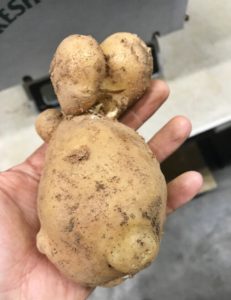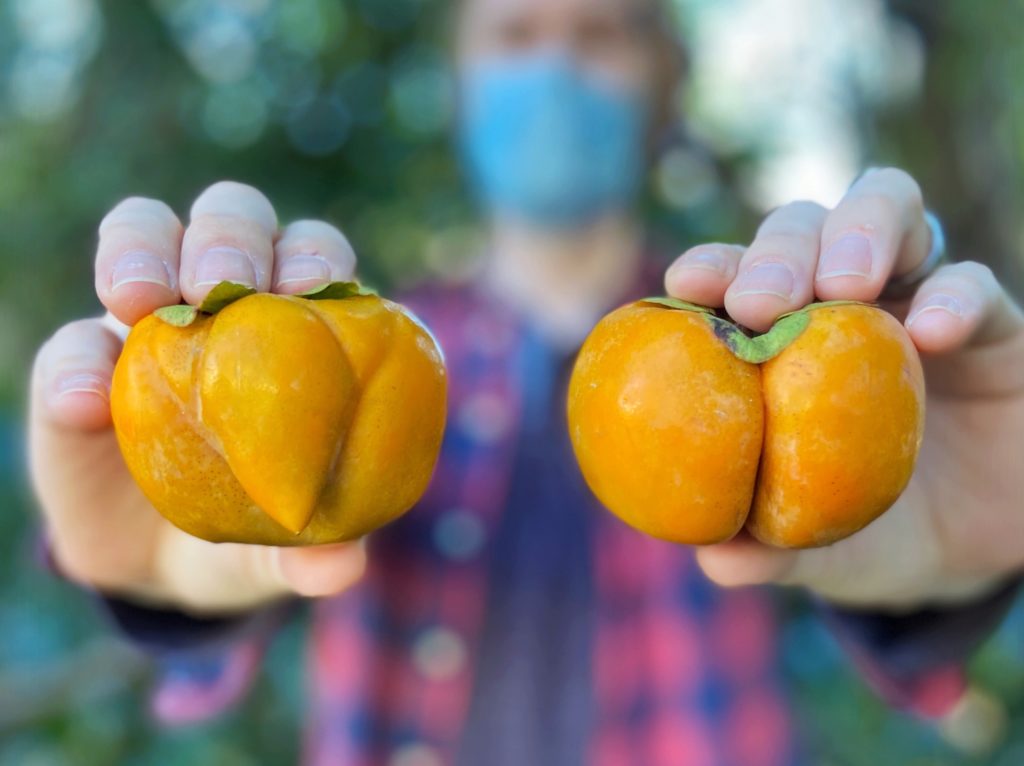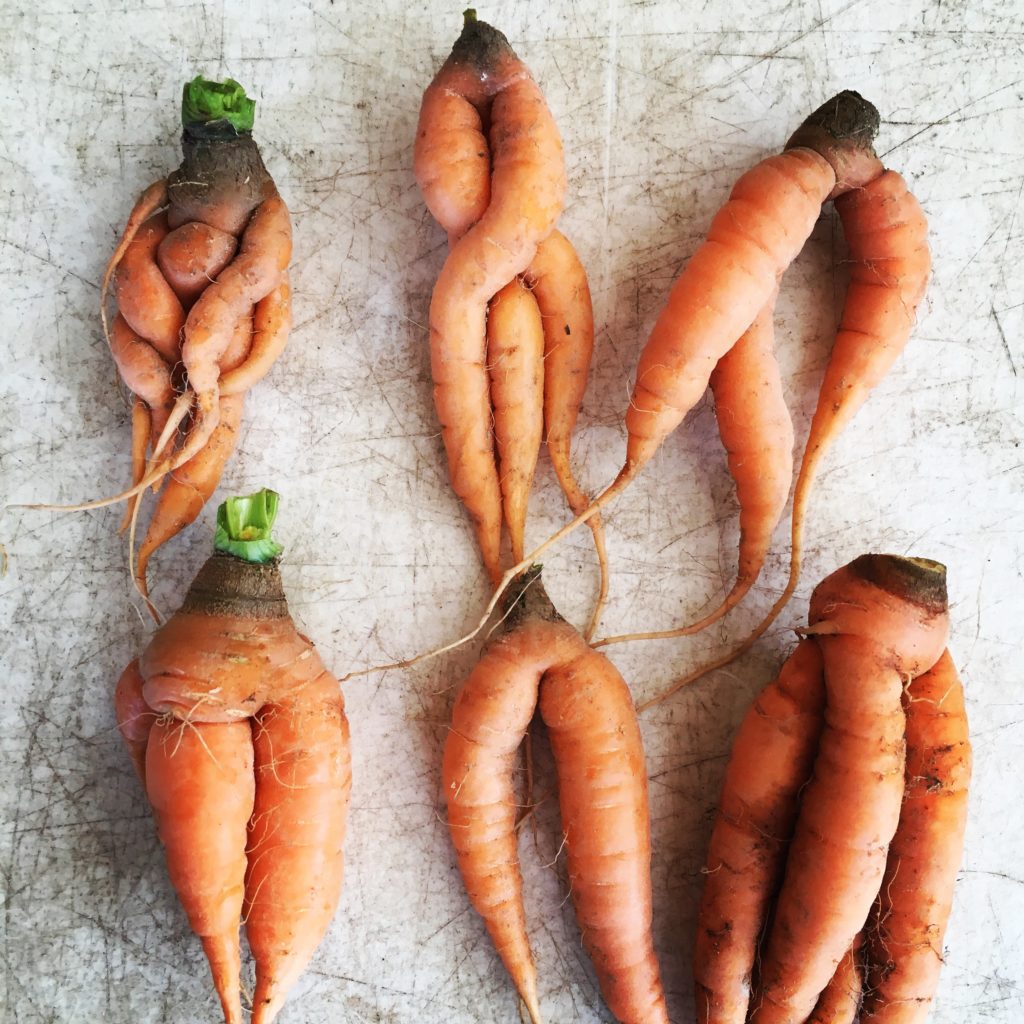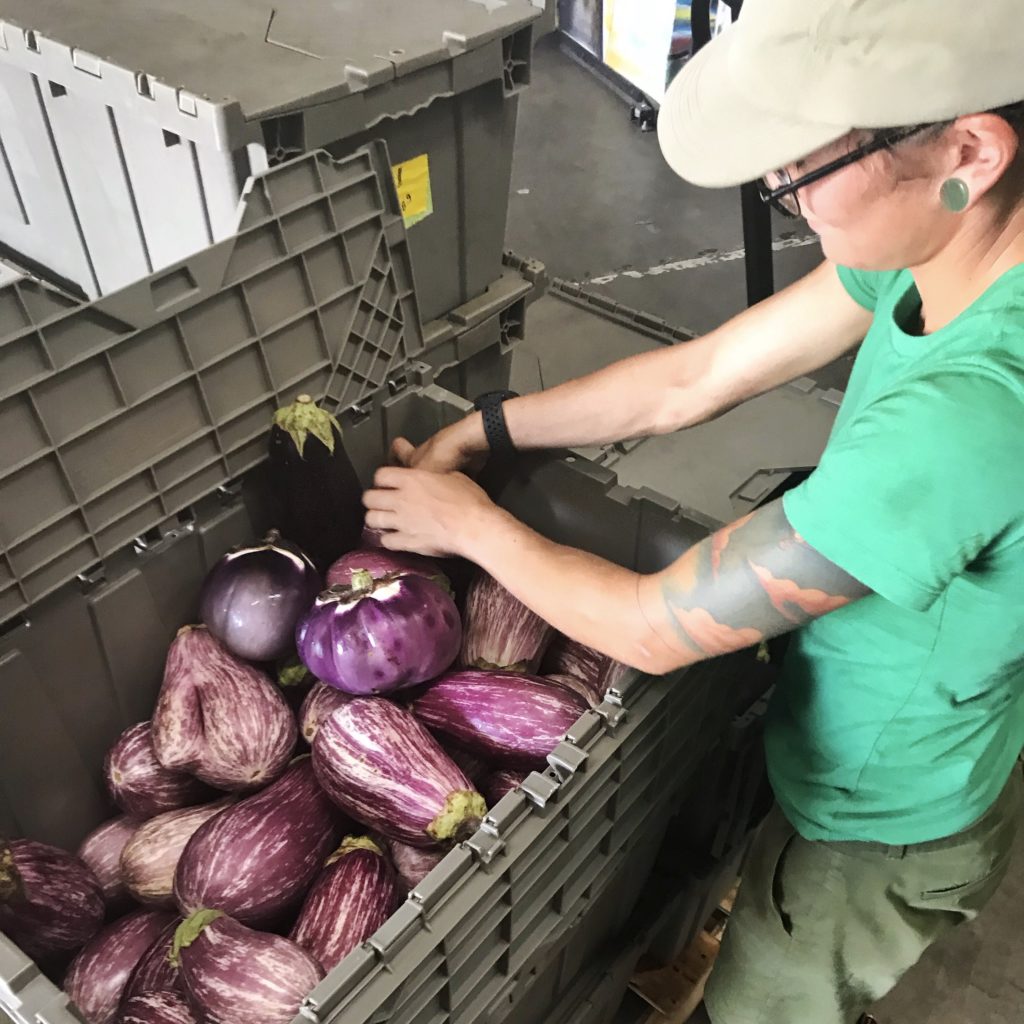You go to the grocery store, survey the produce, and if you have to pick between a “normal” potato and one that looks like a bunny rabbit, you’ll probably pick the normal one. It’s more likely, however, that the bunny spud would never make it to the store in the first place. That’s because there is a veggie beauty pageant along the food supply chain resulting in what’s known as ‘ugly produce’ or #2 grade. Taste and nutritional value aside, it is simply evaluated by is-it-weird-looking, then divided into 1’s and 2’s.

The #2’s find their way to a secondary market where they are sold for heavily reduced prices and end up in processed foods like canned goods, juices, and frozen foods (those baby carrots in your crisper drawer say hi). In the last few years, ugly produce delivery companies like Misfits Market, Hungry Harvest, and Imperfect Foods have emerged as buyers within this secondary market, creating an ugly produce movement. Their mission is to end food waste which begs the question, “is it actually ending food waste?”

Food waste is a massive issue, but the reason we have so much waste is overproduction. And the reason we are overproducing is we have embraced an Industrial Agriculture system for the last 80 years. Farms are run like factories where yield and consistency is the name of the game. Then enter the ugly produce movement to rescue their unwanted excess. They buy up the #2’s at a discounted rate, ship to homes around the country, and encourage their customers to embrace misfit produce to divert food waste, while saving some money.
The problem, however, is that our broken Industrial food system doesn’t change when you create a market that monetizes its overproduction. And who’s to say the misfit vegetable delivery movement isn’t causing further overproduction? With Venture Capitalists involved, it’s a growing and competitive market that demands results. Farms and wholesalers have no motivation to change because ugly produce has become big business.

We spoke about this with Dee Dee Digby, a broker for medium to large farmers on the east coast. When we asked if ugly produce home delivery is alleviating our national food waste problem she simply said, “No. When it started, (early 2016) I was connecting them to farmers who were in trouble but you don’t really see that anymore. I believe, for the most part, they work with large growers with excess due to the ease of the transactions. They are moving quickly, since dealing with perishables, and small farms don’t work for their business models.”
So what is the way forward? We agree with The New Republic who says, “The solution to food waste, then, is not to normalize and monetize ugly produce. It’s to create a system where excess food isn’t produced in the first place.” That system starts with buying from small sustainable farms where “ugly” produce originated. At Fresh Harvest, we’re on track to spend over $4M on local growers and producers in 2021. And not only are we buying the #2’s we’re paying #1 prices for them. More importantly, purchasing their produce bypasses the irresponsible process of overproduction and strict cosmetic standards.

We then crop plan weeks, months and even years in advance with these local growers, providing them with a guaranteed sales outlet to avoid overproduction. Farmers are putting seeds in the ground already designated for our customers. Finally, Fresh Harvest customers customize the contents of their basket the week prior to delivery enabling us to buy exactly what we need. Unlike retailers who overbuy to keep shelves stocked with “pretty” produce, we hold no inventory and therefore produce zero waste.

We believe this localized food system is how to truly reduce food waste. Our customers aren’t just addressing the symptom of food waste, they’re helping end the root problem of industrial overproduction. Michael Wall of Georgia Organics gave our customers a charge when he said, “You are participating in a revolutionary food system that is separate and distinct from a larger one that has a lot of problems with it. It is the beginning of our next, more long term, truly sustainable food system that has the potential to right a lot of wrongs in terms of environmental and economic disparity.”
1 Comment
Add comment Cancel reply
You must be logged in to post a comment.


[…] recently wrote a blog titled ‘What is the Ugly Produce Movement?‘ As we researched, Dee Dee Digby of InterNatural Marketing, was a very helpful resource. […]